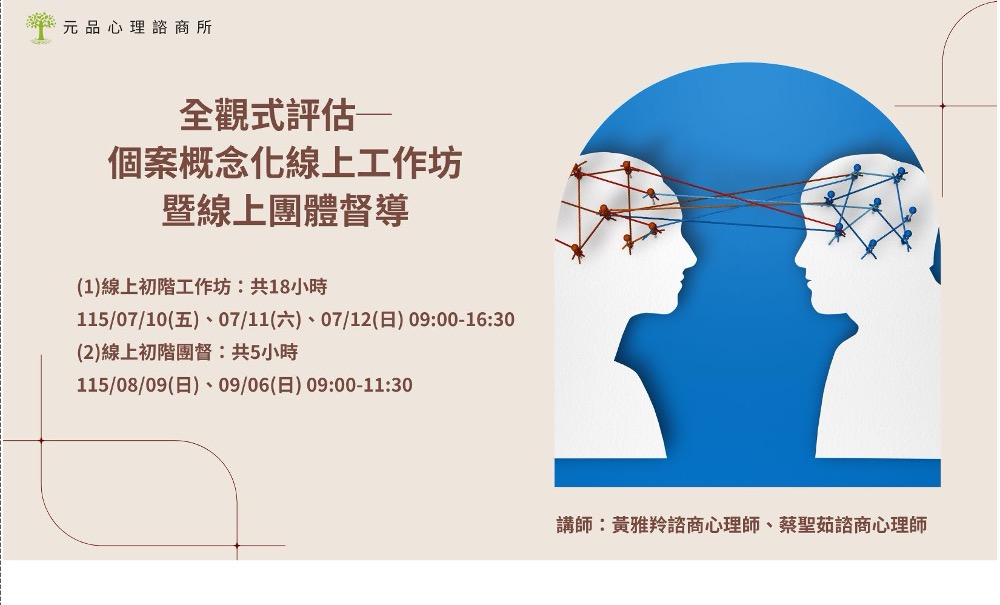Practical Interview Skills
Case conceptualization is a crucial skill for helpers, as it allows us to understand the core reasons behind a client’s issues. However, as there is no comprehensive manual on this process, it is essential for experienced practitioners to guide us through the complexities of case information. Helpers must be aware of their habitual approach to case intake, evaluation, and treatment, and develop a broader perspective in order to build their own conceptualization framework.
To address this need, Yuan Pin has launched the「Holistic Assessment – Case Conceptualization Workshop」. This approach is grounded in psychological knowledge and psychological assessment techniques, using a holistic care perspective combined with effective communication skills to help helpers systematically clarify a client’s life context, gather and synthesize data, and form comprehensive psychological evaluations and conceptualizations. This process enables a clearer understanding of the client’s world and viewpoint.
The 「Holistic Assessment – Case Conceptualization Supervision Group」 will involve two instructors leading the group through brainstorming and multi-faceted discussions based on the proposal shared by participants. This helps the proposal presenter develop a more vivid and multidimensional case conceptualization, while also allowing other members to gain insights into their own case conceptualization styles and habits.
Yuan Pin has designed a three-day online workshop along with two supervision group sessions. The course will be facilitated by two instructors and experienced psychologists from our clinic, focusing on the systematics of case work, employing lectures, concept mapping, group discussions, demonstrations, role-playing, and group supervision to help helpers enhance their effectiveness in their work.
Learning objectives
- Use Concept Mapping (via software or mind maps) to help helpers understand, clarify, and organize their perspectives, styles, and preferences in helping practices.
- Use Concept Mapping to form case conceptualization maps and mental images during case intake.
- Enhance the ability to evaluate the developmental concepts of cases involving children, adolescents, and adults.
- Strengthen the ability to develop a systematic evaluation framework for cases.
- Use group supervision to deepen the workshop learnings for participants.
Course Format
- Workshop: Lectures, Group Discussions, Demonstrations, And Role-Playing Exercises (Including Mind Maps).
- Group Supervision: Case Discussions And Small Group Discussions.





